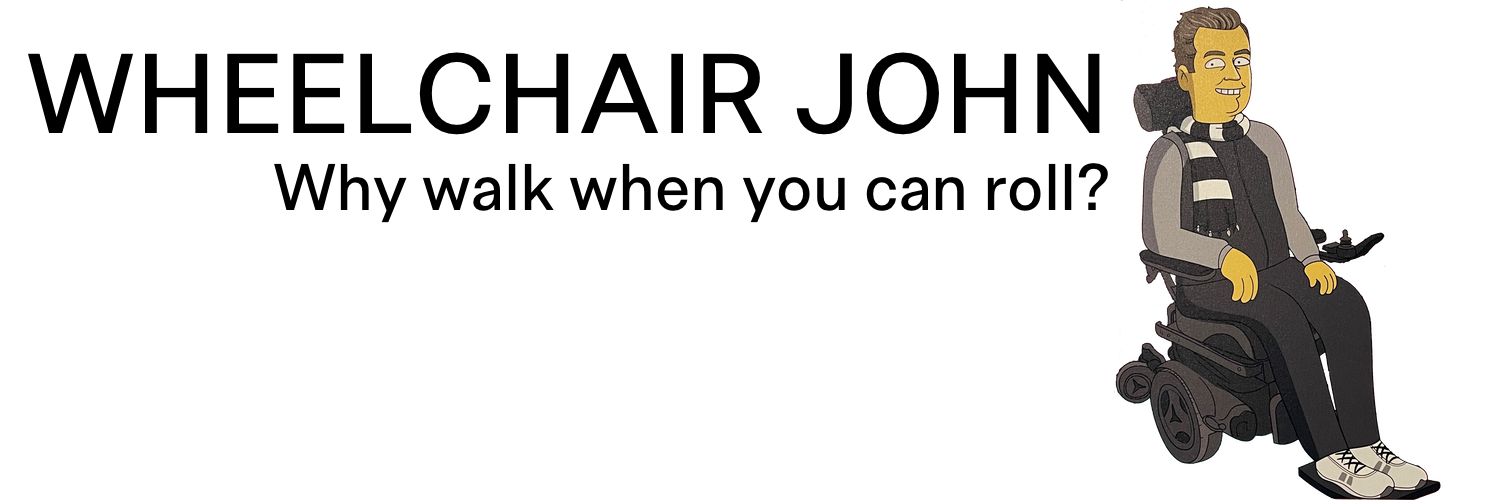Don’t say these 30 things to a disabled person (or with a disorder), as they may be inappropriate comments
 Navigating conversations with a disabled person (or those with a disorder) can result in inappropriate comments, especially if one isn’t familiar with the challenges of living with a disability or a disorder. While we often have the best intentions, certain phrases or questions can be hurtful, dismissive, or downright ignorant, no matter how innocent they seem.
Navigating conversations with a disabled person (or those with a disorder) can result in inappropriate comments, especially if one isn’t familiar with the challenges of living with a disability or a disorder. While we often have the best intentions, certain phrases or questions can be hurtful, dismissive, or downright ignorant, no matter how innocent they seem.
As we champion inclusivity and understanding, we must be educated about the sentiments that can unintentionally harm or marginalize.
In this blog, we’re diving deep into 30 things you should avoid saying to someone with a disability or disorder to foster better understanding and meaningful relationships. Each point will illuminate why the statement can be problematic, aiming to create a more empathetic and informed dialogue for everyone involved.
Let’s journey towards creating a world filled with more empathy, one conversation at a time.
30 inappropriate comments to a disabled person
“What happened to you?” – This question makes assumptions and can invade someone’s personal privacy.
“You’re so brave/inspirational!” – It can come off as patronizing or assume that living with a disability inherently requires bravery.
“Have you tried…?” – Offering unsolicited medical advice can be presumptuous and may minimize their medical or lived experience.
“It’s God’s will.” – This can come off as dismissive, and not everyone shares the same religious beliefs. And you may be making offensive comments to say God wants them to have the disability.
“At least you’re not [insert a worse scenario].” – This minimizes their efforts and experiences.
“I could never live like that.” – This statement centres the conversation on your feelings rather than theirs and may harm their mental health and push them closer to self-harm.
“You’re lucky to park closer/avoid stairs/etc.” – It assumes benefits when the individual might trade them in a heartbeat to not have their disability.
“Can you have children?” – This is intrusive and can be deeply personal.
“Are you contagious?” – This displays ignorance about the nature of their disability and can make them feel alienated.
“Do you need that [insert an assistive device]?” – Questions their personal needs and can feel dismissive.
“Is it because you drank/smoked/did drugs?” – This wrongfully assigns blame and is based on assumptions.
“You don’t look sick/disabled.” – Invalidates their experiences based on appearance.
“It’s all in your head.” – This dismisses their experience and may stigmatize mental health challenges.
“Everyone gets tired/sad/anxious, etc.” – Minimizes their unique challenges by equating them to common feelings.
“So, when will you get better?” – Assumes their condition is temporary or can be ‘cured.’
“You’re just seeking attention.” – Invalidates their experiences and assigns false motives.
“I know someone with that. They’re normal.” – Defines their experience based on someone else’s and assumes what “normal” is.
“You should just push through it.” – Minimizes their pain or challenges.
“But you were fine yesterday!” – Assumes their condition is consistent and fails to understand the variability of many conditions.
“It’s just a phase.” – Invalidates their experience by suggesting it’s temporary or not genuine.
“Have you prayed about it?” – Imposes religious views and might suggest they haven’t sought every possible solution. Or may make them think their Faith is too low to be healed by God.
“Things could always be worse.” – This minimizes the difficulties of living with their disability or disorder.
“Do you wish you were normal?” – Suggests that they aren’t ‘normal’ or their life is lesser in some way.
“It must be nice to stay in bed all day.” – Assumes their condition is a form of leisure or laziness.
“At least you don’t have [another disability or illness].” – Compares other disabilities or disorders that are neither helpful nor supportive.
“I’m a little OCD/ADHD/etc. too sometimes.” – Minimizes the condition by equating it to quirks or habits.
“Why can’t you do it? It’s easy!” – Doesn’t consider their unique challenges.
“You’re too young to be sick/disabled.” – Makes assumptions based on age and invalidates their experiences.
“You must have done something to deserve this.” – Wrongfully assigns blame or assumes karma.
“Why are you always complaining?” – Dismisses their valid feelings or experiences.
Conclusion
 The journey of understanding and empathy is continuous, and I am living proof of its transformative power. Before acquiring my disability, I was largely unaware of the experiences of those living with disabilities or disorders. From a place of ignorance, it’s so easy to utter words that may sting, belittle, or marginalize, even with the best of intentions.
The journey of understanding and empathy is continuous, and I am living proof of its transformative power. Before acquiring my disability, I was largely unaware of the experiences of those living with disabilities or disorders. From a place of ignorance, it’s so easy to utter words that may sting, belittle, or marginalize, even with the best of intentions.
I hope that by sharing these 30 things not to say, we’ve illuminated some of the unintentional pitfalls in our conversations. We must all continually educate ourselves, seek understanding, and, most importantly, listen to the lived experiences of others. The more we know, the better equipped we are to foster connections built on respect and empathy.
Please commit to being more mindful of our words, asking questions when in doubt, and always leading with kindness. Let our conversations be bridges to understanding, not barriers. A world that champions inclusivity is where everyone feels seen, heard, and valued.
Click here for the Wikipedia article about Disability.
Click here for additional information about this site.
